What to know about the massacre in Highland Park
Could Congress' gun bill have prevented bloodshed at the parade?

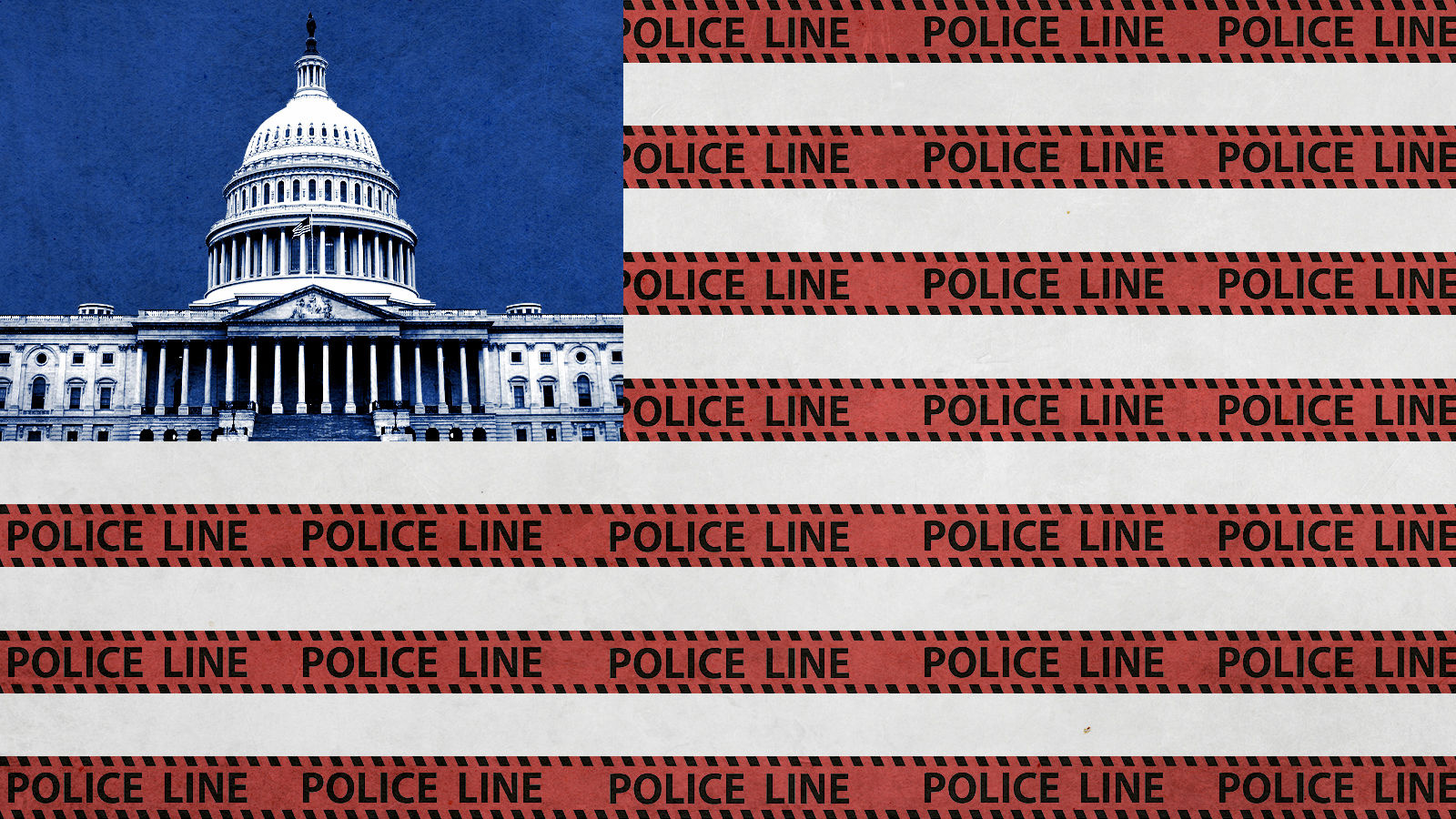
A free daily email with the biggest news stories of the day – and the best features from TheWeek.com
You are now subscribed
Your newsletter sign-up was successful
On Monday morning, a gunman opened fire on a Fourth of July parade in Highland Park, Illinois. Seven people died, and at least 30 were injured in the massacre. A suspect, Robert E. Crimo III, was apprehended on Monday evening, and on Tuesday was charged with seven counts of first-degree murder, with prosecutors saying more charges will be coming soon. Here's everything you need to know:
How did the shooting unfold?
The shooting began at around 10:20 a.m., with witnesses saying as soon as they heard the pop pop pop of gunfire, they began to run. Authorities say the shooter was firing from the top of a building, having climbed up a fire escape to this perch; later, law enforcement officials recovered a rifle from the rooftop that had been left behind. On Tuesday, a spokesman for the Lake County Major Crime Task Force told reporters the gunman used a rifle "similar to an AR-15," and fired more than 70 rounds into the crowd. The suspect fled the scene — authorities say he donned women's clothing as a disguise and was able to blend into the crowd — which sparked a massive manhunt involving hundreds of police officers.
Within a few hours of the shooting, Crimo, 21, was named a person of interest, and authorities described him as armed and dangerous. He was spotted on Monday evening by police officers in North Chicago, and following a short car chase, was taken into custody. Authorities say the motive for the shooting remains unknown.
The Week
Escape your echo chamber. Get the facts behind the news, plus analysis from multiple perspectives.

Sign up for The Week's Free Newsletters
From our morning news briefing to a weekly Good News Newsletter, get the best of The Week delivered directly to your inbox.
From our morning news briefing to a weekly Good News Newsletter, get the best of The Week delivered directly to your inbox.
Who are the victims?
Six of the seven victims have been identified by the Lake County coroner: Katherine Goldstein, 64; Irina McCarthy, 35; Kevin McCarthy, 37; Jacquelyn Sundheim, 63; Stephen Straus, 88; and Nicolas Toledo-Zaragoza, 78. The identity of the seventh victim has not yet been released. Nearly all of the victims lived in Highland Park.
Irina and Kevin McCarthy were the parents of a 2-year-old, Aiden, who was at the parade but survived the attack. Sundheim was a lifelong member of the North Shore Congregation Israel synagogue in Glencoe, Illinois, and spent decades there as a staffer. Strauss was a financial adviser who still went to work every day, taking the train to Chicago, where he had a brokerage firm.
What has the suspect been charged with?
He was charged on Tuesday with seven counts of first-degree murder. Lake County State's Attorney Eric Rinehart, who called the attack "premeditated and calculated," said these are initial charges, and dozens more will be sought. If convicted, Crimo will receive a mandatory life sentence without the possibility of parole.
What do we know about the suspect?
Crimo grew up in the Highland Park area and was an amateur rapper who went by the stage name Awake the Rapper. Authorities say they are looking at social media posts believed to have been made by the suspect, and they are violent in nature, with some depicting school shootings. The suspect's uncle, Paul Crimo, told ABC News his nephew had been living with him, and they didn't really speak to each other much. Paul Crimo also said the suspect did not have a job or many friends, and primarily focused on making music in his room.
A free daily email with the biggest news stories of the day – and the best features from TheWeek.com
Deputy Chief Christopher Covelli of the Lake County Sheriff's Office said on Tuesday that Crimo had two interactions with police in 2019: In April, someone who knew Crimo contacted law enforcement and said he recently attempted suicide, and in September, a family member called police and said Crimo had knives and threatened to "kill everyone." Covelli said police officers spoke with Crimo and his parents in April, and they were told Crimo was getting support from mental health professionals. In September, officers went to Crimo's home and seized 16 knives, a dagger, and a sword. Due to lack of probable cause, Crimo was not arrested, Covelli said, but officers did notify Illinois State Police about the interaction.
Was the suspect able to legally purchase firearms?
Covelli told reporters that Crimo legally purchased five guns before he turned 21, and bought the rifle he allegedly used during the shooting within the past year. Gun licenses in Illinois are issued by state police, and Crimo applied for a firearm owners identification card in December 2019, three months after his second interaction with law enforcement. Due to his age, he needed parental consent, and his father sponsored his permit application.
Illinois State Police said on Tuesday that the report it received from Highland Park Police in September 2019 deemed Crimo a "clear and present danger," but since he did not have a firearm owners identification card at the time, there was nothing to revoke or any application to deny, and the agency determined the matter was closed. No one came forward with a formal complaint against Crimo, the Illinois State Police said, nor did anyone provide "information on threats or mental health that would have allowed law enforcement to take additional action." The state police also said that in 2020 and 2021, Crimo went through four background checks while purchasing guns, and passed all of them.
What has been the response from lawmakers and other officials?
Illinois Gov. J.B. Pritzker (D) said on Monday that he was "furious that yet more innocent lives were taken by gun violence." Deadly mass shootings have become a "weekly, yes weekly, American tradition," he continued, and while "there are going to be people who say that today is not the day, that now is not the time, to talk about guns, I'm telling you there is no better day and no better time than right here and right now. It's the Fourth of July, a day for reflection on our freedoms. Our founders carried muskets, not assault weapons. And I don't think a single one of them would have said that you have a constitutional right to an assault weapon with a high-capacity magazine or that that is more important than the right of the people who attended this parade today to live."
Vice President Kamala Harris visited Highland Park on Tuesday, after delivering a previously-scheduled address to educators in Chicago. During her speech, Harris called for a ban on assault weapons, saying, "There is no reason that we have weapons of war on the streets of America." Illinois has a "red flag" law, which allows family members and police to petition a court to take away an individual's firearms if they believe this person might hurt themselves or others. Rinehart, the state's attorney, said on Tuesday that there needs to be more done to educate the public about Illinois' red flag law, and there has to be a ban on assault weapons "in Illinois and beyond."
Could Congress' new bipartisan gun bill have done anything to prevent this?
The bipartisan legislation, passed in the wake of May's Uvalde, Texas, school shooting, enhances background checks for gun buyers between the ages of 18 and 21 and provides federal funding for states to enact red flag laws and boost mental health services. On Tuesday, reporters asked Rep. Robin Kelly (D-Ill.) if the new gun bill could have prevented the Highland Park shooting. It depends on where the weapon used in the attack was purchased, Kelly said, and it's unclear what the suspect's mental state was at the time of buying the rifle. "I don't know his whole story, so I'm not sure," Kelly said.
While there are too many unknowns in this case, Kelly continued, "if you look across the United States ... these laws would have helped save lives. Maybe not in one particular case or another. But, in general, we know that these laws will save lives." Rev. Michael Pfleger of the St. Sabina Catholic Church in Chicago told the Chicago Sun-Times that the bill is a start, but until Congress approves "comprehensive universal background checks across this country" and closes gun show loopholes, it won't be enough, and guns will still be able to make their way easily from Indiana to Chicago.
Catherine Garcia has worked as a senior writer at The Week since 2014. Her writing and reporting have appeared in Entertainment Weekly, The New York Times, Wirecutter, NBC News and "The Book of Jezebel," among others. She's a graduate of the University of Redlands and the Columbia University Graduate School of Journalism.
-
 The environmental cost of GLP-1s
The environmental cost of GLP-1sThe explainer Producing the drugs is a dirty process
-
 Greenland’s capital becomes ground zero for the country’s diplomatic straits
Greenland’s capital becomes ground zero for the country’s diplomatic straitsIN THE SPOTLIGHT A flurry of new consular activity in Nuuk shows how important Greenland has become to Europeans’ anxiety about American imperialism
-
 ‘This is something that happens all too often’
‘This is something that happens all too often’Instant Opinion Opinion, comment and editorials of the day
-
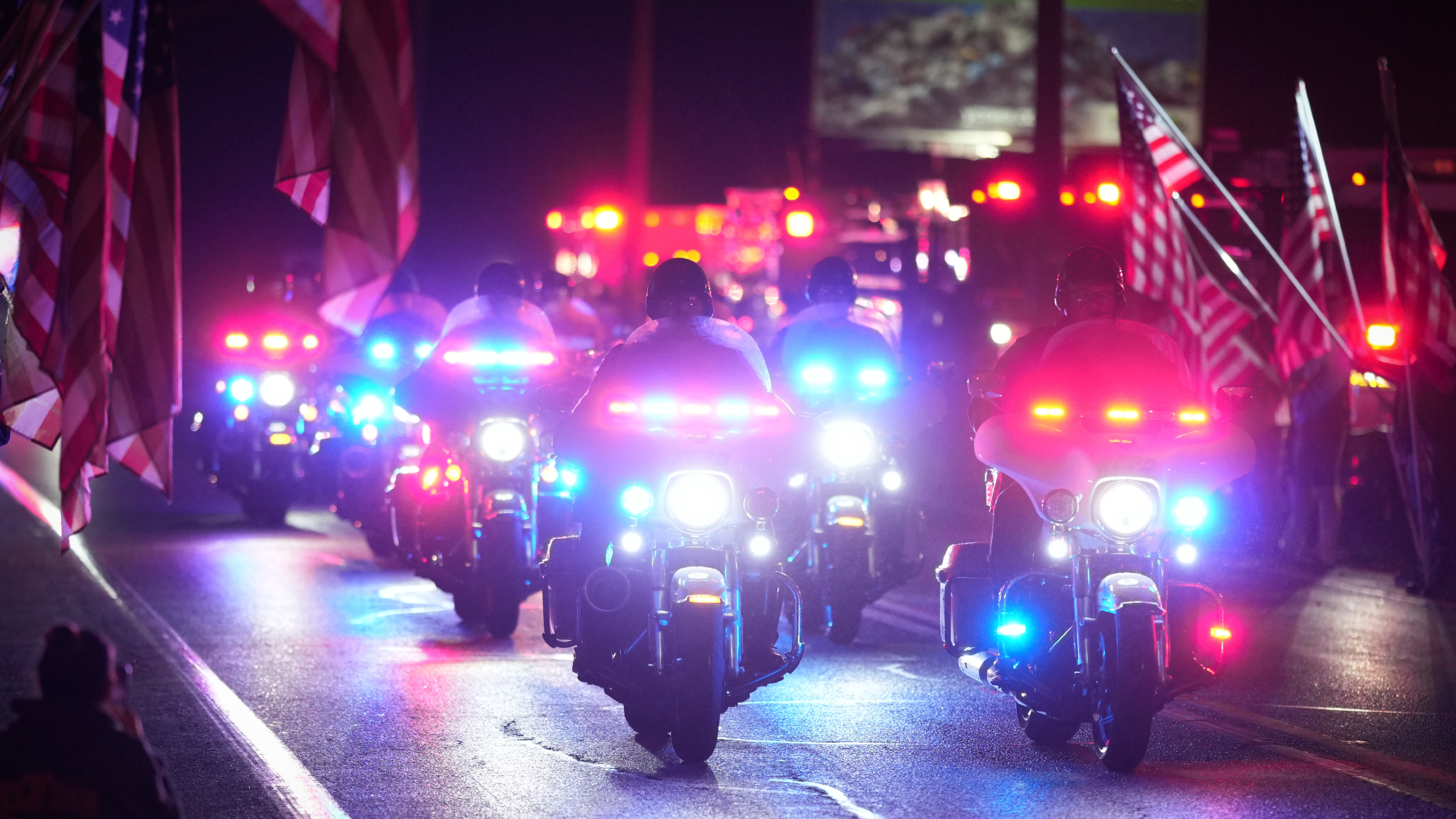 3 officers killed in Pennsylvania shooting
3 officers killed in Pennsylvania shootingSpeed Read Police did not share the identities of the officers or the slain suspect, nor the motive or the focus of the still-active investigation
-
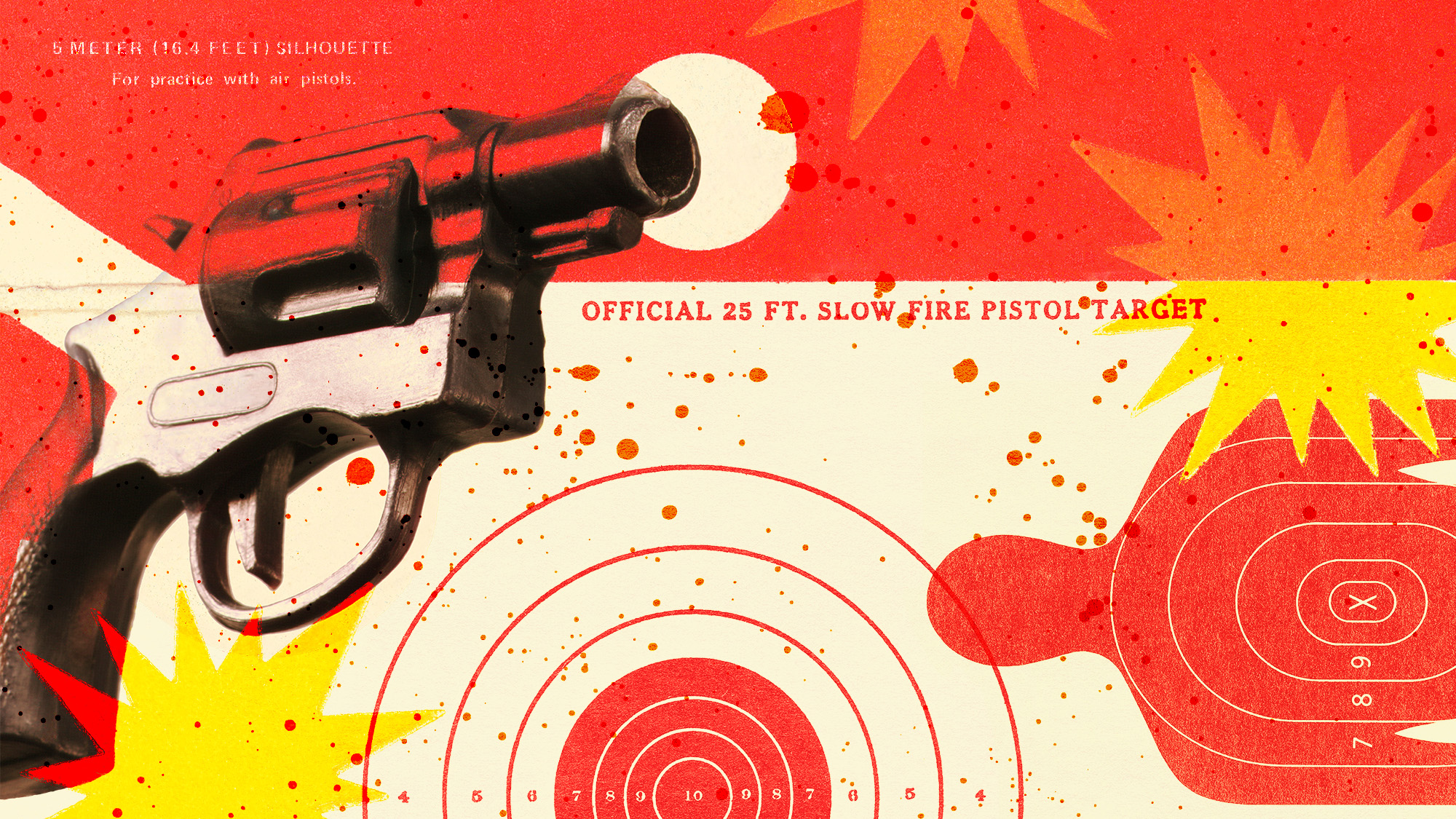 Trump lambasts crime, but his administration is cutting gun violence prevention
Trump lambasts crime, but his administration is cutting gun violence preventionThe Explainer The DOJ has canceled at least $500 million in public safety grants
-
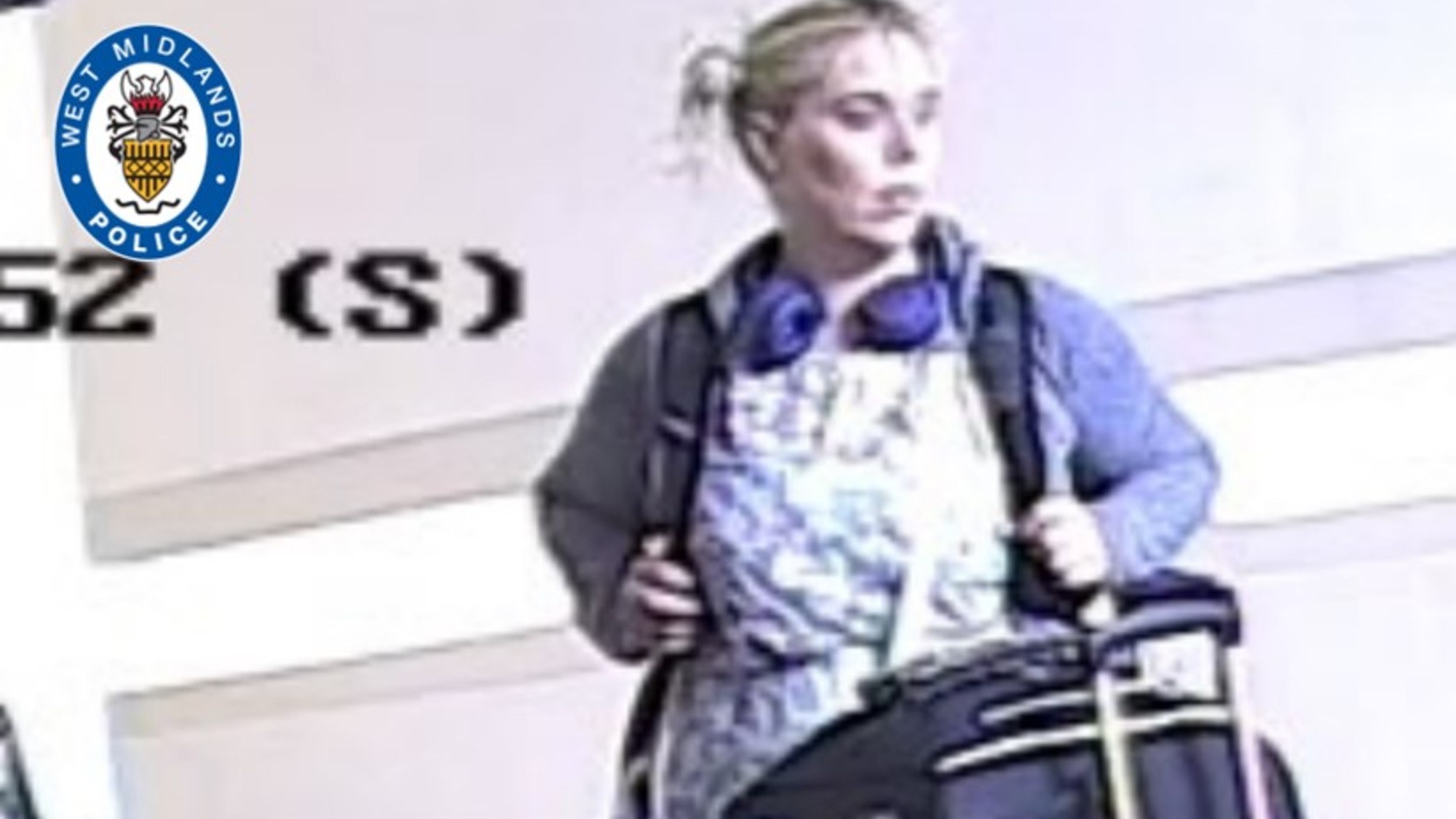 Aimee Betro: the Wisconsin woman who came to Birmingham to kill
Aimee Betro: the Wisconsin woman who came to Birmingham to killIn the Spotlight US hitwoman wore a niqab in online lover's revenge plot
-
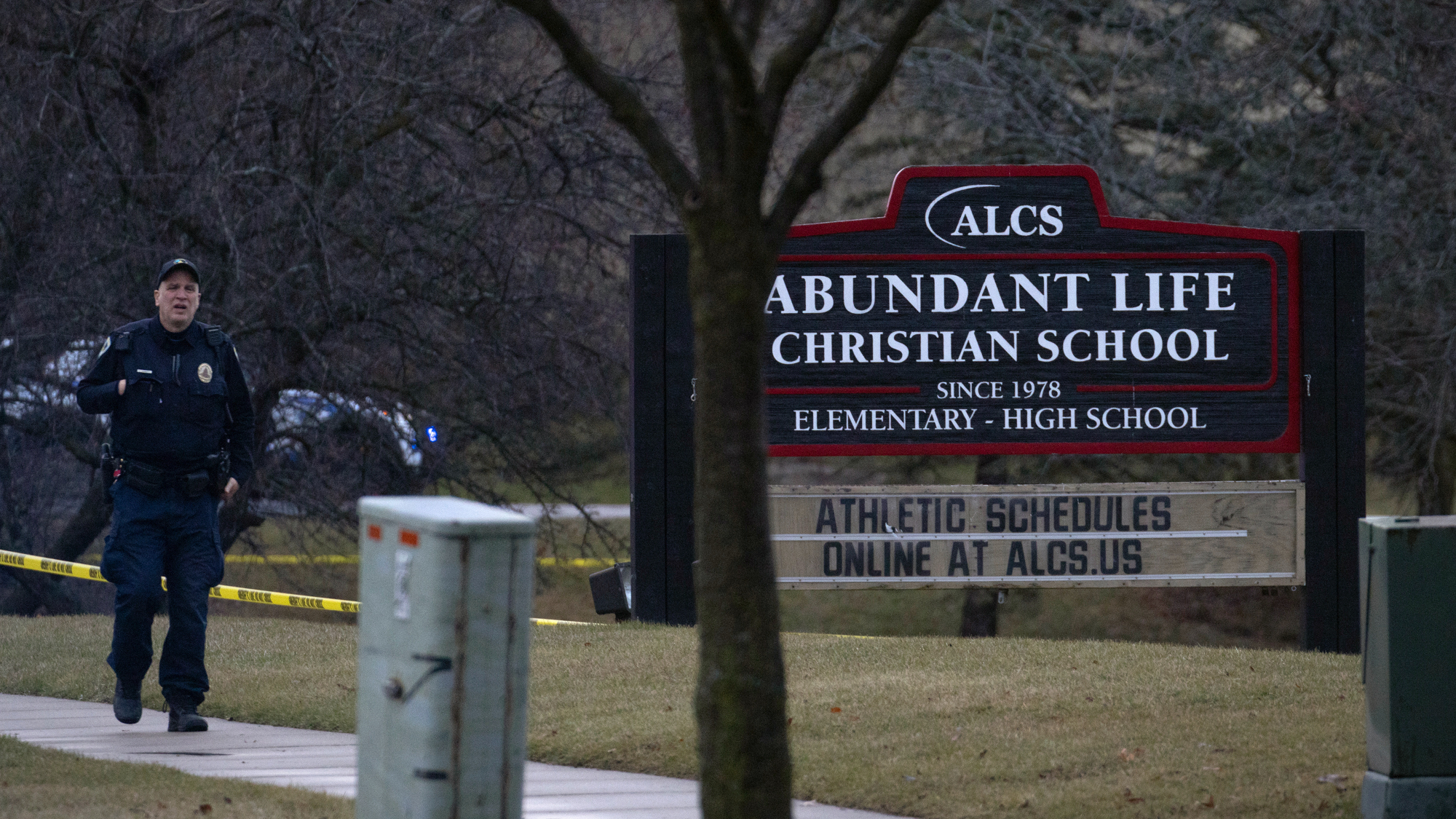 Teenage girl kills 2 in Wisconsin school shooting
Teenage girl kills 2 in Wisconsin school shootingSpeed Read 15-year-old Natalie Rupnow fatally shot a teacher and student at Abundant Life Christian School
-
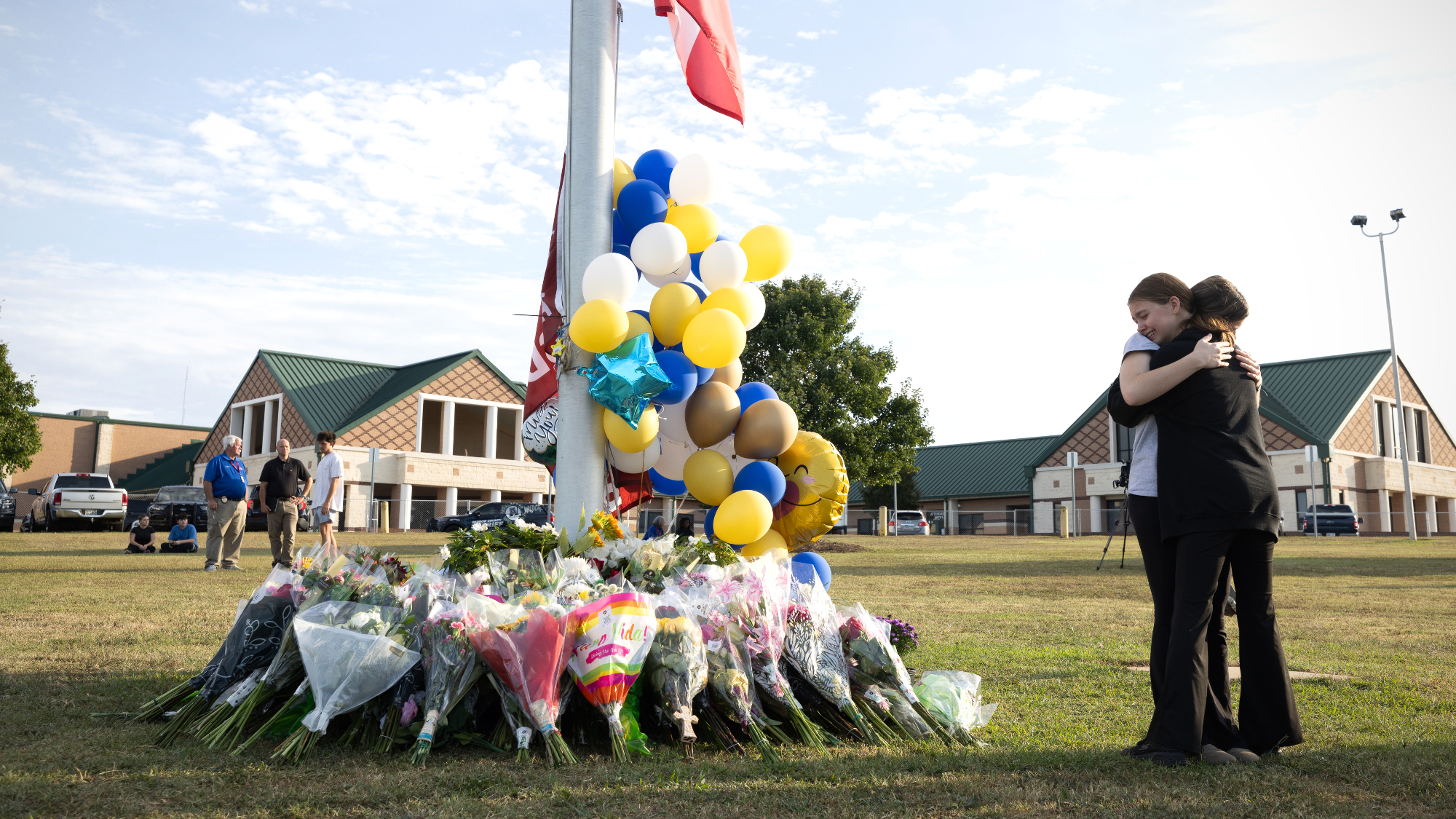 Father of alleged Georgia school shooter arrested
Father of alleged Georgia school shooter arrestedSpeed Read The 14-year-old's father was arrested in connection with the deaths of two teachers and two students
-
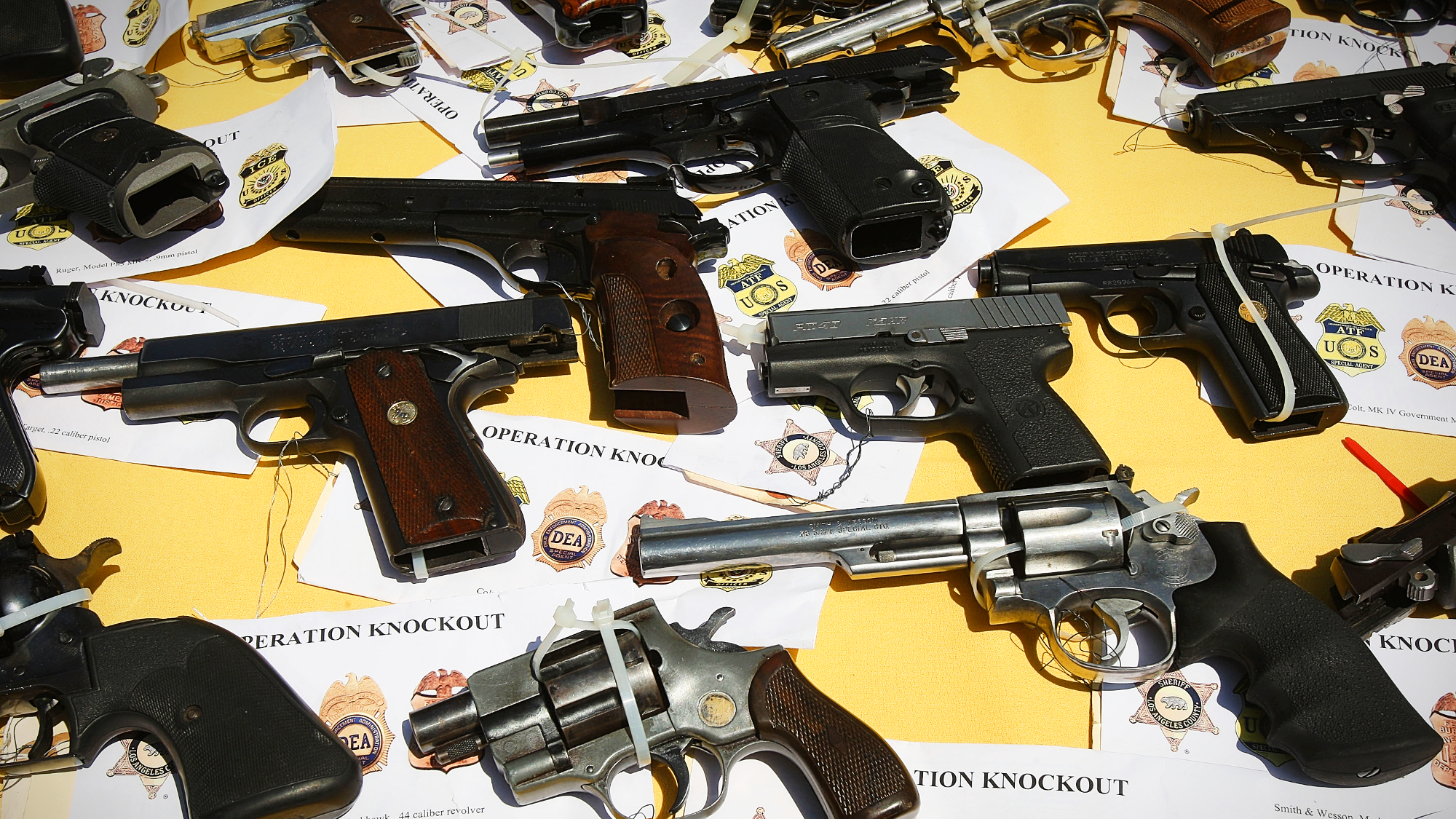 Unlicensed dealers and black market guns
Unlicensed dealers and black market gunsSpeed Read 68,000 illegally trafficked guns were sold in a five year period, said ATF
-
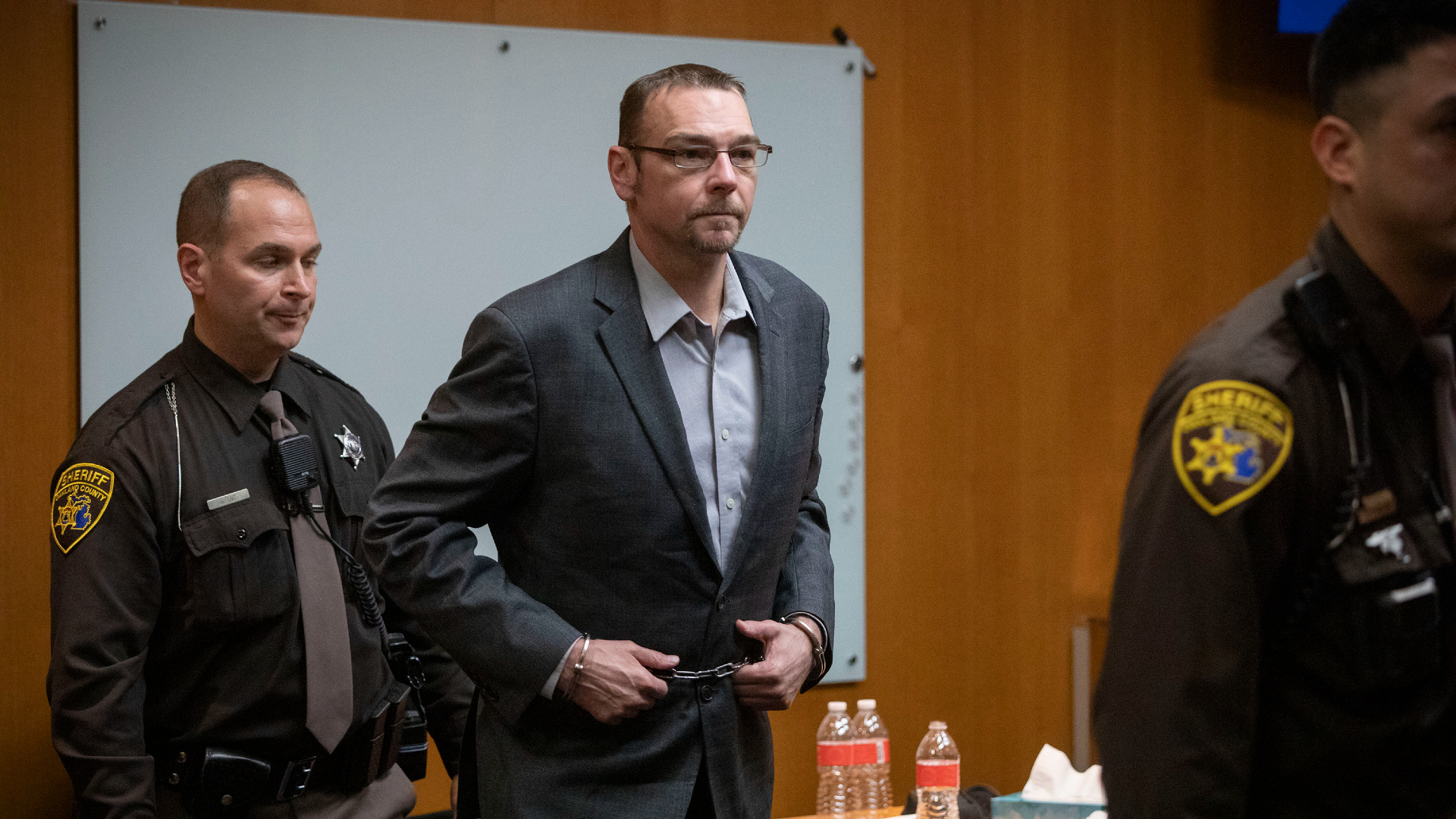 Michigan shooter's dad guilty of manslaughter
Michigan shooter's dad guilty of manslaughterspeed read James Crumbley failed to prevent his son from killing four students at Oxford High School in 2021
-
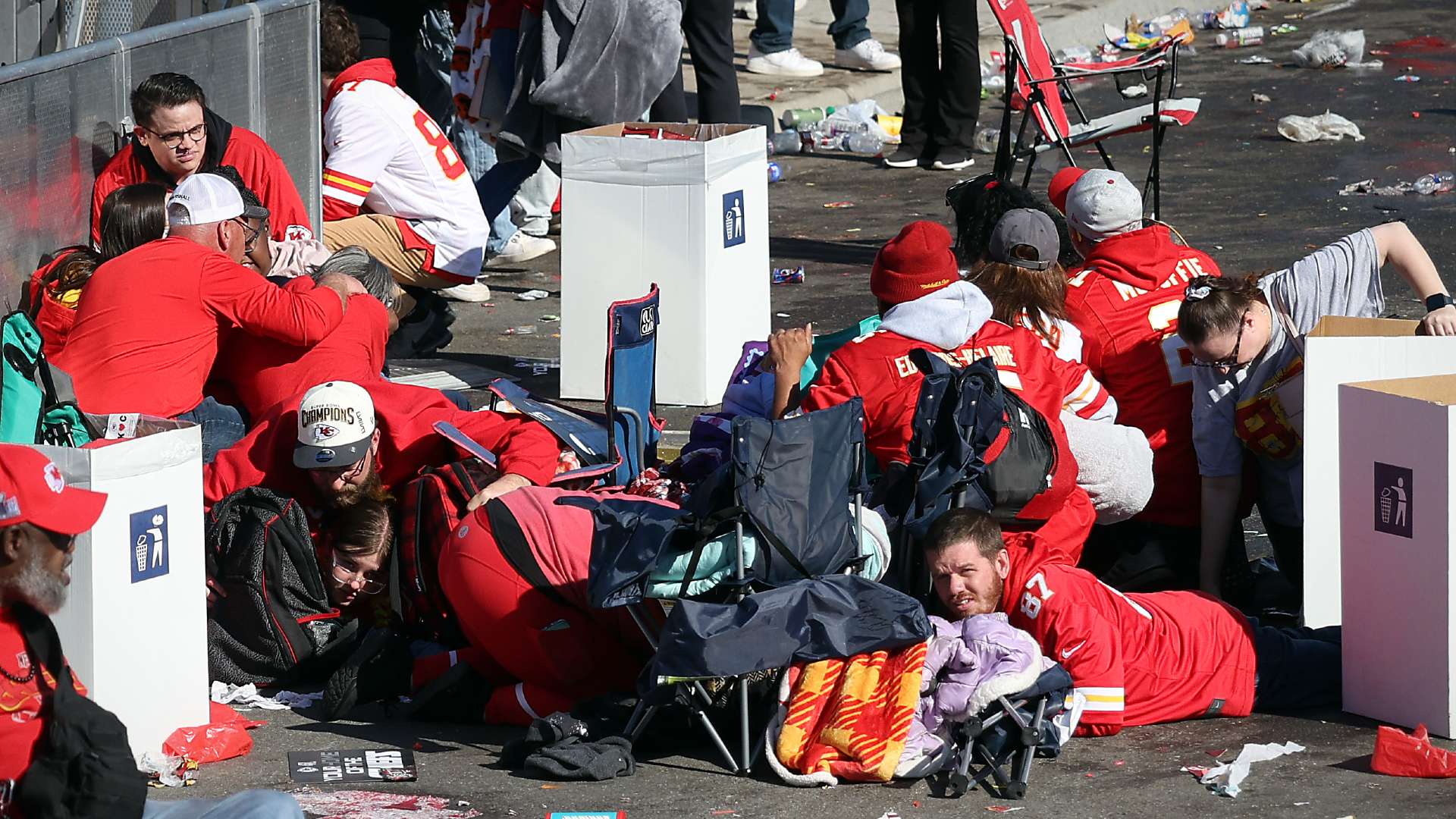 Shooting at Chiefs victory rally kills 1, injures 21
Shooting at Chiefs victory rally kills 1, injures 21Speed Read Gunfire broke out at the Kansas City Chiefs' Super Bowl victory parade in Missouri
